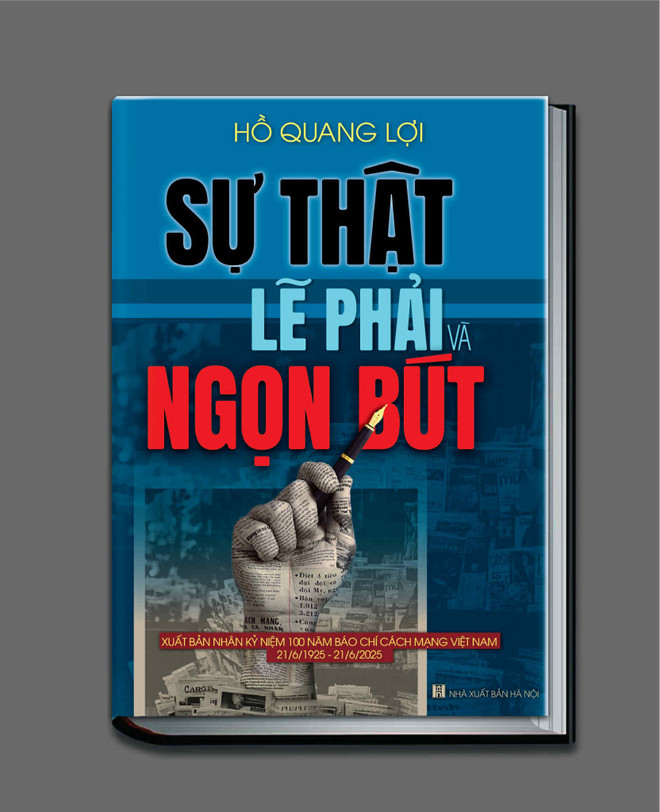
I was not too surprised but also surprised that Ho Quang Loi published a new book. Not surprised because I have known his boiling creative energy. But I was also surprised because his new book, which seems purely about journalism with a very suggestive title: "Truth, reason and the pen," is a thick book with 621 pages, hot on current events, sharp interpretation of culture, careful yet soaring sentences, sublimating literary beauty.
The more you read the book, the more attractive it becomes, not only because of the domestic and international issues, but also because of the journalistic stories that seem to have become classics for hundreds of years, and the cultural stories that seem to have been familiar for thousands of years, but why are they still attractive, captivating, new and interesting to read? This is Ho Quang Loi's 11th book, but thanks to his talent and sharp intelligence, journalist and writer Ho Quang Loi does not repeat himself.
The publication of the book “Truth, Righteousness and the Pen” on the occasion of the 100th anniversary of the Vietnamese Revolutionary Press is of course aimed at the topicality that is the nature of journalism. Readers are more demanding, they need new knowledge, they expect wise explanations from a talented journalist who was loved and trusted on the new issues that have emerged in today’s life. I think Ho Quang Loi has shown that, so the book becomes attractive and interesting.
It must be said that the book is quite massive, consisting of 8 chapters, the amount of knowledge related to current events, culture and especially journalism is very dense, comprehensive, both broad and deep, certainly will satisfy the learning needs of the most demanding readers. It would not be an exaggeration to advise that the book will be a standard knowledge handbook not only for those working in journalism but also an intellectual address for cultural researchers, cultural managers, businessmen, leaders, managers, and policy makers related to socio-cultural development to refer to. And of course, readers too, loyal readers of Ho Quang Loi and those interested in culture, journalism...
Especially for young people who love and want to pursue journalism, more than anyone else, read this book to listen to senior journalist Ho Quang Loi discuss the truth, the right, and the pen - that is, a unified system of journalistic values that is extremely necessary for a long and difficult journey of writing in the present and future.
Ho Quang Loi has been in journalism for 45 years, holding most of the positions from reporter, editor, commentator, deputy section chief, head of the editorial secretary, deputy editor-in-chief, editor-in-chief. He also has many years of experience in directing and managing newspapers in Hanoi and the Vietnam Journalists Association , so his experience in journalism is comprehensive and rich. This collection of journalism culture can be considered a research work, of course the result of many years of work and contemplation. I read it quickly and then slowly reread it, and it is truly gratifying that the book by journalist and writer Ho Quang Loi is always full of current events on every page. I clearly feel the pulse of the times in his book. It still updates today's stories and is always the freshness of knowledge, knowledge about culture, about life that is happening and forecasts for tomorrow.
For example, in chapter 1, Ho Quang Loi named the chapter THE PULSE OF THE TIMES, going straight into the extremely important and sensitive issue of our country today. That is "The revolution in streamlining the Vietnamese political system in 2025 carries within it an urgent and burning demand like a verdict of history." From there, he raised an issue that touched our hearts, "The Vietnam Question - Vietnamese Truth." And he answered with democratic and close research: "In my working life, I have had the opportunity to meet, exchange, and discuss with many foreign writers, journalists, researchers, and politicians about what they call the "Vietnam Question." Each person has a different way of talking about it, but in general, they all want to explain together why Vietnam can overcome such a strange situation both in war and in peacetime, especially when facing the most dangerous situations to be able to survive and develop as it is today. What is the biggest secret? That is the Vietnamese Spirit!”
A story that is not only within the framework of journalism but is a big question about culture, there will be many different answers, but I believe that Ho Quang Loi's answer is an affirmation of a truth, a belief, an intellectual contemplation of a talented journalist with experience in international commentary.
Also around this issue, Ho Quang Loi had a breakthrough when continuing to discuss the story of "STATEMENT BREAKTHROUGH."
He asked the question “Our country is on the threshold of a new era - the era of national rise. With what impetus does Vietnam rise and take off?” - the answer readers can find in the book to discuss with him. As for me, I think Ho Quang Loi was very subtle when in chapter 1, along with mentioning the Party and State leaders establishing the “strategic quartet” (streamlining the political system; developing science and technology, innovation, digital transformation; developing the private economy ; promoting international integration) as important matters of the country, he chose the hottest international stories to comment on “THE NEW GLOBAL WORLD.” Is it possible that he wants to position Vietnam in this world?
This article written by Ho Quang Loi on May 25, 2025 is very hot, I believe many Vietnamese people are looking forward to his explanations. It is interesting that Ho Quang Loi wrote: “Four characters, V. Putin, D. Trump, Xi Jinping and E. Mursk, are considered by observers to be “the most powerful people in the world” today. On April 16, 2025, Time magazine announced the list of the 100 most influential people in the world, in which Mr. D. Trump was at the top and this is the seventh time Mr. D. Trump was selected by Time magazine for this list.” And “The Russia-China-US strategic triangle will be complicated in the context of the new times, continuing to be the strategic relations with the greatest weight and influence in contemporary international life.”
“World history is first and foremost a competition for power among major countries. Since ancient times, the world has been constantly plowed by endless competitions, first of all between empires and great powers, for the benefit of the nation and people....". The astute reader will know his intention and they will also believe that his intellectual belief in the steering of the country's boat by our Party will overcome the storms of the times to develop strongly in the new era. That is the contemplation, that is the answer of a "pen" that journalist Ho Quang Loi chose this golden word for this precious book to replace "pen" as commonly called.
Another interesting cultural story that Ho Quang Loi devoted the clearest and most imaginative sentences that I know is Thang Long-Hanoi. It seems that every time he touches Hanoi, a thousand years of culture, his pen seems to soar and sublimate to write beautiful sentences.
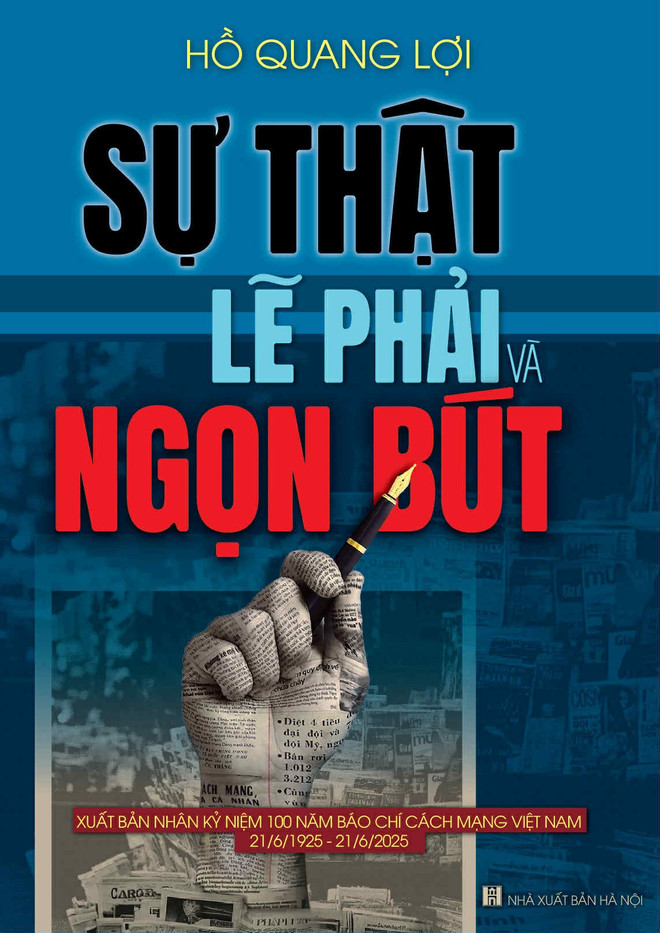
This time, when writing about Hanoi on the occasion of the 70th anniversary of the liberation of the capital, Ho Quang Loi was as passionate as an architect designing Hanoi's culture. He asked the question, "What will Hanoi look like in the future? Hanoi is oriented to develop along 5 main spatial axes, including the Red River axis, the West Lake-Ba Vi axis, the West Lake-Co Loa axis, the Nhat Tan-Noi Bai axis and the South Hanoi axis, in which the Red River axis is the most important central axis, representing an unprecedented strategic breakthrough."
He talked about belt roads, satellite cities, elevated railways, high-speed railways, and then suddenly he stopped to think for a long time to be able to write and suggest ideas that "exhausted" his love for Hanoi: "The history of urban development in Vietnam as well as in the world is always associated with rivers. The Red River converges natural, cultural, historical and sizeable elements to plan development to become a symbol of the Capital.
The Red River has such a vital meaning for the development of Hanoi, but until now, unfortunately, the city still turns its back on the Mother River. That is a huge waste in the construction and development process of Thang Long-Hanoi. To realize the dream of the Red River, Hanoi must definitely turn its face to the river, turning both sides of the river and the sandbank into a modern, civilized, ecological urban architectural space, becoming the driving force for socio-economic development. This is no longer just a strategic direction and orientation, but has become a burning command of today's great construction in the capital Hanoi. The breath of the Red River is the breath of Hanoi. Everything originates from the Mother River and returns to the Mother River. It is both a return to the source and an orientation towards the future."
“In the space of Thang Long in the new era, standing on Long Bien bridge, watching the Red River flowing out to the East Sea, we seem to feel the breath of water, the murmur from the ground and the wind of the Red River blowing from ancient times. How much blood and sweat has been shed on this land in the eternal connection between generations. We seem to feel the sacred shadow of history, the urge of the present and the majestic shadow of the future...”. I intentionally quoted a rather long passage like the one above by Ho Quang Loi so that we can see together that it is difficult to recognize who he is at this moment? Is he a journalist, a writer or a cultural researcher? Or is he all three in one person? Saying so, I secretly think it is not an exaggeration to see that the story of culture and the story of journalism through the talent of Ho Quang Loi will evoke many interesting things.
Returning to the book “Truth, reason and the pen,” Ho Quang Loi devoted the following 7 chapters to tell a valuable, serious story about journalism. It is a long story about journalism told, explained, and confided on the basis of sharp intelligence and natural, humane emotions.
It is no coincidence that in this precious book, the first article that Ho Quang Loi chose to put in the number one position is “A century of fighting for the country and the people” with the fulcrum being the story of Uncle Ho - the founder of the Vietnamese revolutionary press. That is not only his way of expressing his deep affection but also that of Vietnamese journalists for the immense gratitude of President Ho Chi Minh to the Vietnamese revolutionary press.
Not stopping there like the usual articles telling historical stories, Ho Quang Loi leads readers to approach new information, directing readers to the story of how for a century now, Vietnamese people, especially revolutionary soldiers and press soldiers, have followed the journalism flag of Nguyen Ai Quoc-Ho Chi Minh to fight for the country. I completely agree when Ho Quang Loi explains: “The fact that Thanh Nien newspaper was born 5 years before the founding of the Party shows that leader Nguyen Ai Quoc had soon considered the press as a special weapon, with pioneering properties. As early as 1922, as one of the founders and directly working on the newspaper Le Paria (The Miserable), Nguyen Ai Quoc clearly recognized the particularly important role of the press. At the end of 1924, when returning to Guangzhou (China), Nguyen Ai Quoc immediately started publishing a political newspaper.” It can be said that a century of revolutionary journalism contributed greatly to gaining independence and freedom for the country.
And today, when the country is entering a new era, still in need of the dedication, dedication, and sacrifice of journalists, Ho Quang Loi has made many journalists like myself nod their heads as they read because of the truth in his sincere words: “The Vietnamese and world press are undergoing an unprecedented, profound transformation in the way they work, but the ethics, ideals, and mindset of revolutionary journalists cannot be different. We work to protect justice and reason, work for the benefit of the country and the people.”
In the last chapter of the book, in the article "The Great Teacher," Ho Quang Loi once again gives us more understanding about Uncle Ho's journalistic activities. During 60 years of revolutionary activities, journalist Ho Chi Minh wrote thousands of articles of all kinds in many languages. He worked and did many real journalistic jobs from founding, organizing, participating in editing, managing, and operating the editorial offices of dozens of revolutionary newspapers in different periods, not only domestically but also abroad.
Ho Quang Loi has researched seriously, to tell us - the journalists of his time as a trusted confidant: "Studying the ideology, ethics and journalism style of President Ho Chi Minh, journalists not only learn from him how to write, how to use words, and how to think in journalism, but also learn the optimistic spirit to overcome all difficulties and challenges. With an optimistic spirit, those who are and will choose journalism will have more confidence and motivation to contribute and fulfill their duties in the development and innovation of the country."
In this new book, Ho Quang Loi has devoted his efforts to analyzing and explaining the most fundamental, important, current, and most concerned issues of modern Vietnamese journalism. That is from the story of “The mindset of holding a pen” to “Journalistic ethics,” from “The light of humanity” with the story of being a decent journalist to “Stronger than the sword” with the story of “Fire and gold test the pen,” from “Accompanying to win together” with the story of life “when journalism struggles with food and money.” And especially the hot issue of journalism today is social networks, artificial intelligence (AI) and journalism with the most current story “AI - assistant or opponent?”...
Journalists in Vietnam have always been trusted and respected by society. Perhaps no journalism textbook has spoken so well and passionately about journalism and journalists as Ho Quang Loi; because reading him, many journalists feel their souls deeply moved, feel more proud of journalism, and feel themselves greater than their original stature: "Journalist" is a title worthy of respect, a sacred and precious transmission. Talking about journalism means talking about the function of clarifying the truth, the mission of protecting truth and justice. However, when protecting truth and justice, journalism must not only be combative but also uphold humanity. Behind each work of journalism is the identity of a person, the fate of a family, a community, and even impact on society, depending on the issue and perspective that the article deals with."
Under his pen and love, the title of journalist becomes sacred, whoever reads it feels like they are inspired, inspired by a prestigious colleague. Surely many people already know and so do I, I believe he speaks from his heart, speaks from his heart as a colleague, as a friend confiding, sharing with another friend, colleague.
In an interview, Ho Quang Loi confided: “The press has the responsibility to protect justice and reason, so journalists must be brave and dedicated. When it comes to journalism, it means fighting spirit, going to the end, clarifying the truth, protecting the truth and being attached to humanity.” Reading this, I understand more and more that he was right when he named his book “Truth, Reason and the Pen.”
The most current story related to journalism is the issue of social networks and artificial intelligence (AI). Ho Quang Loi has researched, dissected, and expressed a unified, clear, and decisive view. Therefore, he devoted a whole chapter to discussing SOCIAL NETWORKS, AI, AND JOURNALISM. He affirmed that journalism will never win over social networks in terms of speed of information delivery, but journalism will surpass social networks with the professionalism, responsibility, and ethics of journalists. “What makes journalism continue to affirm its role in social life? That is reliability and persuasion.”
More than once, journalist Ho Quang Loi affirmed that the superiority of press content will lead to victory in the information highway. He compared content to the “heart of journalism”; and if content is considered the “King”, then technology is the “Queen.” He pondered and affirmed: “Right now, we cannot know the ultimate limit of artificial intelligence. No matter how superior it is, AI is just a cold machine with enhanced algorithms. AI has no heart, no soul, no morality, and cannot fully feel the emotions and real needs of the human heart and soul.” I feel what he said about AI technology as a declaration of modern journalism: “If artificial intelligence controls humans, it will be the most painful and terrible technological failure of humanity.”
The interesting issues about journalism in this book can be compared to comprehensive, valuable and profound open research works, but are still attractive and convincing. Ho Quang Loi once said in a certain journalism work, roughly: The end of journalism is culture. I also want to quote many more good things that come from the words in the work "Truth, reason and the pen" but do not want to "take away the share" of readers, so I would like to leave it to those who will come into contact with and ponder this book.
The three great propositions Truth - Reason - Pen contain within them the intellectual and responsible reflections of a man who has spent his life pursuing journalism. Although it may be subjective, I would like to affirm that "Truth, Reason and Pen" is a valuable book, which can be considered a valuable contribution of Ho Quang Loi to the country's press./.
Major General, PhD, writer Nguyen Hong Thai
Member of Central Theoretical Council
Former Editor-in-Chief of People's Police Magazine
Source: https://www.vietnamplus.vn/nhung-cau-chuyen-ly-thu-ve-van-hoa-va-bao-chi-post1041773.vnp








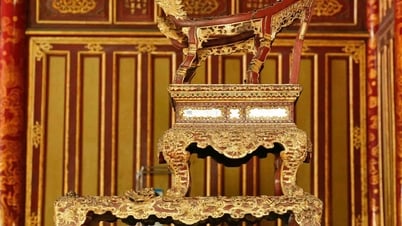

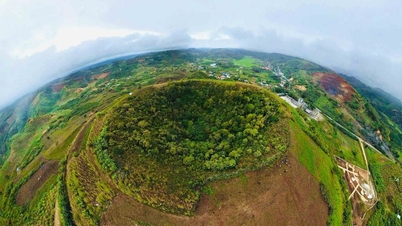
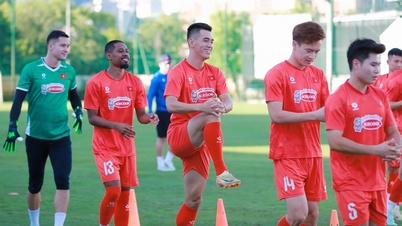

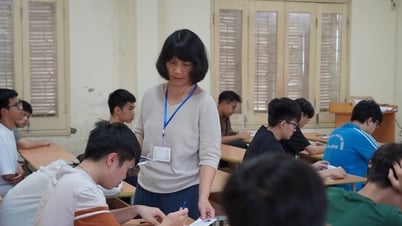
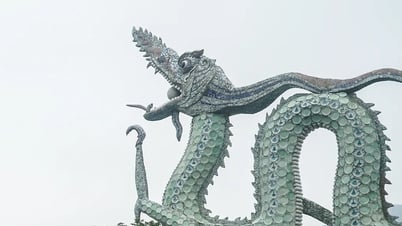
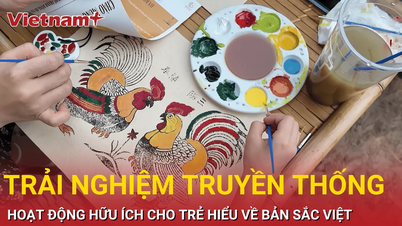




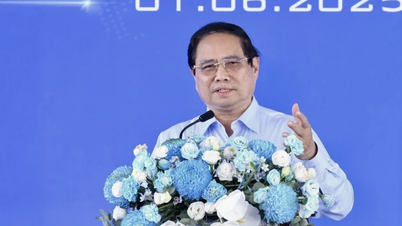
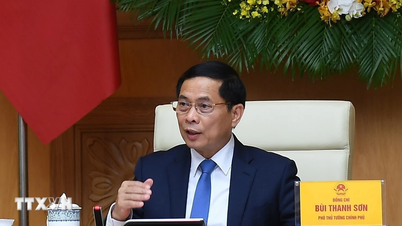

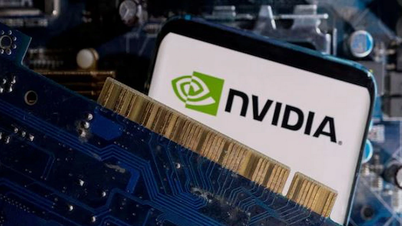
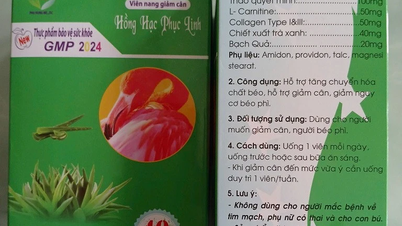


































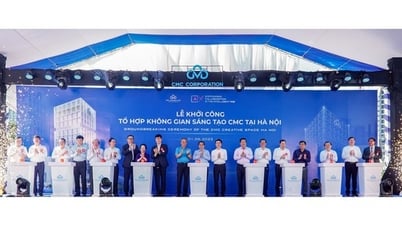

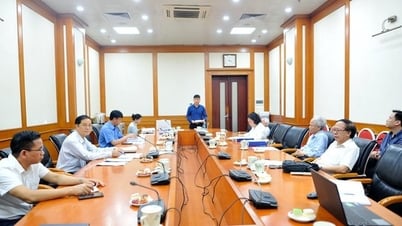






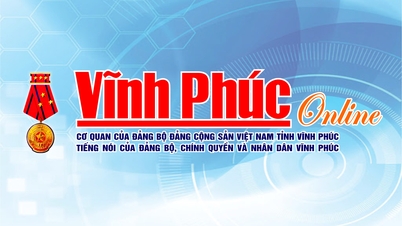

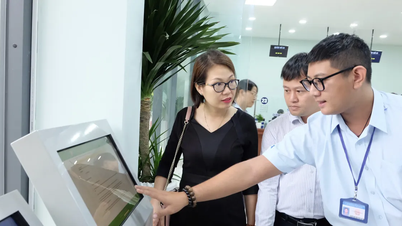



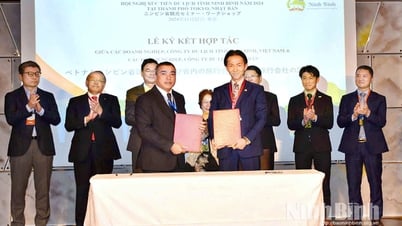

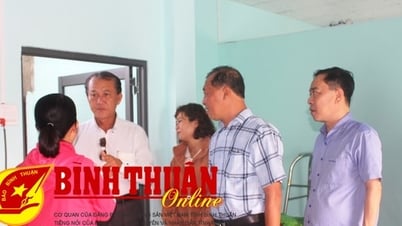

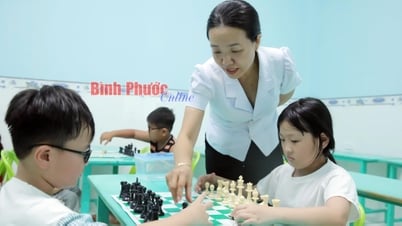









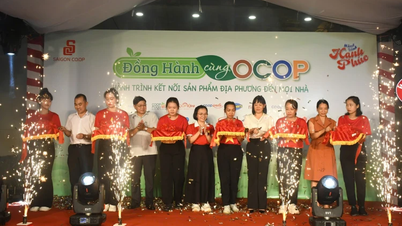



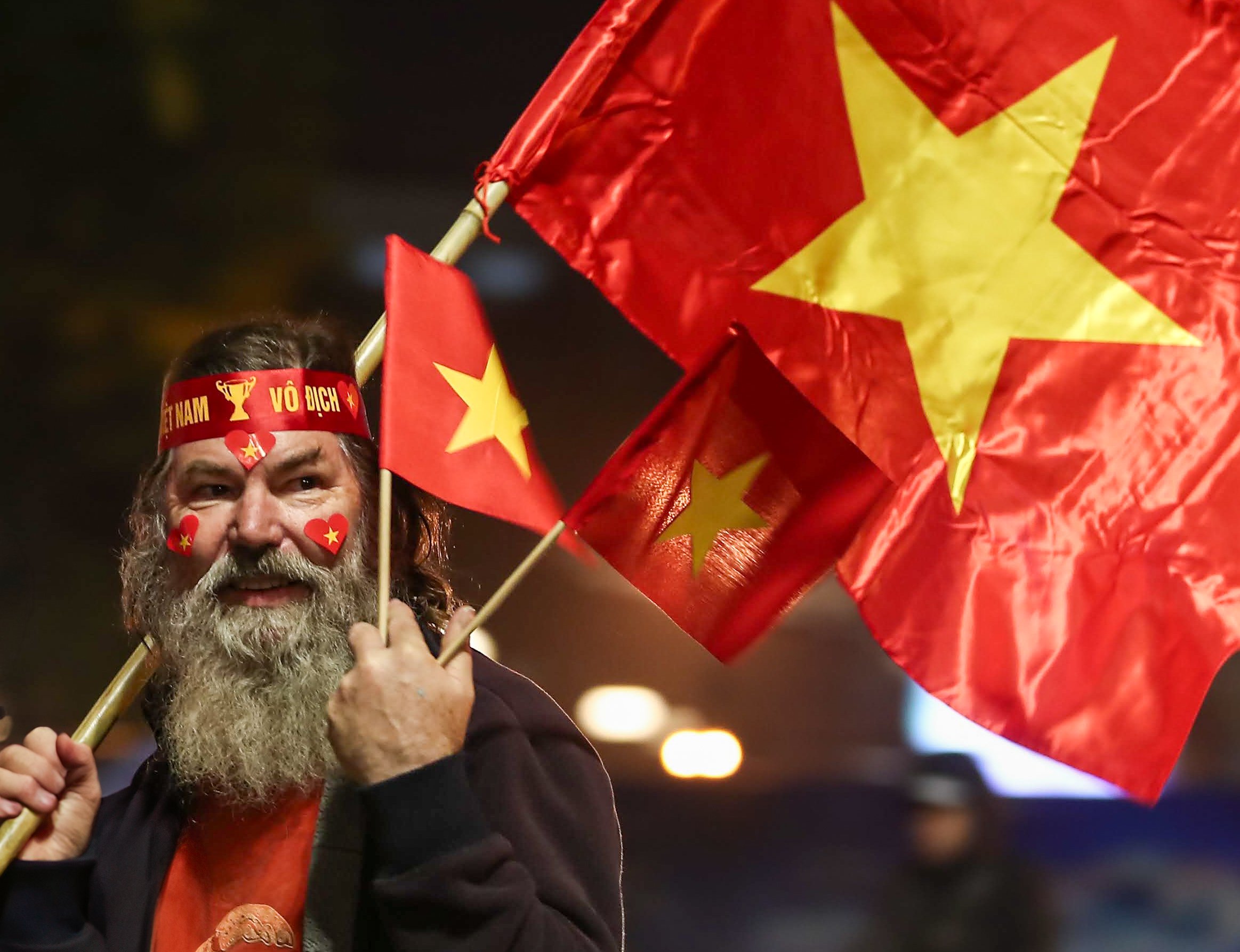



Comment (0)